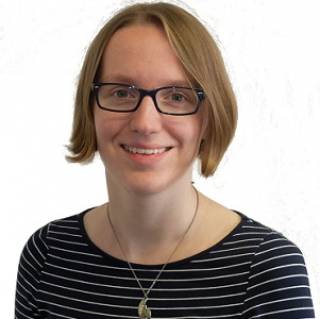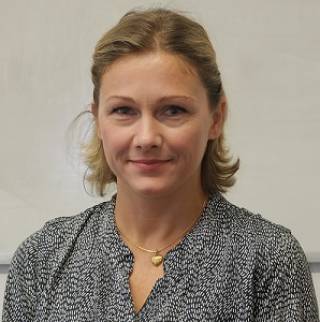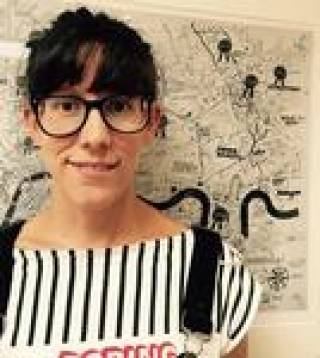Careers
UCL Language & Cognition is a highly rated and regarded research environment. Recent graduates from the PhD programme have typically been offered employment in the UK and internationally in academic posts, postdoctoral research and health services. Here are some examples.
- Post-doc in Language and Cognition UCL 2014-2017; now post-doc in University of York 2017-
- Lectureship in Linguistics Dept, Queen Mary University of London, (2017) following a post-doc in UCL Speech Hearing and Phonetic Sciences (SHaPS) during 2013-2017.
- Lecturer in Speech Pathology, King Saud University, Riyadh, Saudi Arabia 2016-
- 2 speech and language therapists working in Riyadh, Saudi Arabia 2015-
- Post-doc in UCL Experimental Psychology funded by ESRC for 1 year (2010) followed by a post-doc in UCL’s Health Behaviour Unit (2011); now a lecturer in IOE, UCL’s Institute of Education and Society 2012-
- Clinical Psychology Training, Institute of Psychiatry (2010) now working a clinical psychologist
- Senior speech and language therapist in NHS Trust, departmental lead for SLT research. Research Champion for the Royal College of Speech and Language Therapists
- Independent speech and language therapist
Graduate Testimonials
 | Dr Gwen Brekelmans, teaching focussed lecturer at Queen Mary University of LondonWhen I started my research career I was new to both the UK and UCL, but was particularly interested in doing a PhD in Language & Cognition because of the specific expertise in the department, and the broader expertise within Chandler House and PALS. My PhD topic, focussing on how children learn the speech of a second or foreign language, crosses the boundaries of developmental work, speech research, and second language learning, so UCL was a great place to perform this multidisciplinary research. There’s lots of talks to go to in the different departments where you can meet people working on related work, and you can take various modules in the first year of your PhD as well to help broaden your horizons or fill out those areas of knowledge that you think you might need for your research. My PhD was funded through a departmental demonstratorship, which means that during the PhD I contributed a set number of hours to teaching each year. It was such a lovely experience on all accounts: I really enjoyed working together with excellent colleagues on both the BSc Psychology and Language Sciences as well as the MSc Speech and Language Sciences, and it was a great learning experience to teach to such different sets of students. The demonstratorship team really ensured that I got all the relevant teaching experience I was looking for by providing me teaching experience in small group tutorials as well as bigger lectures or labs, and across different modules. While I didn’t initially think I would end up in academia, through this postgraduate teaching experience I realised I thoroughly enjoyed it and decided to look into academic careers after all. The research and teaching experience I gathered through my PhD truly set me up very well for my current job as a lecturer. |
 | Dr Hanyu Dong, Post-doc Researcher, East Normal University, ShanghaiI have finished both my Masters and PhD at UCL, Division of Psychology and Language Sciences. While my Masters experience has left me great impression with this department in general, I was also intrigued by the enthusiasm of the researchers working here. Through my learning stages at undergraduate and Masters, I've acquired the essential abilities of being a researcher and I wanted to improve myself during the PhD. Thus I decided to proceed to PhD level. I was funded by the Chinese government which is renewed on an annual basis. My research focused on second language learning and individual differences. The department has a good reputation in the relevant field, the facility is well-equipped with own sound proof testing booth and neuropsychological device (EEG, fMRI etc.), and the everyone here is really nice and helpful. I also worked as teaching assistant, lecturer, tutor and lab demonstrator across multiple disciplines. The university has a wide range of jobs for PhD students and they are not only well-paid, but also good opportunities for you to learn more about the education system here and improve your own academic ability. PhD life here is colourful. We have a lot of events, ranging from academic seminars and workshops to social parties and trips. You have the opportunity to join societies, become representatives and organise your own events supported by the faculty. After my PhD, I've worked for the department as an online content developer for one academic year. After that, I'll go back to China as a Post-doc researcher at East Normal University in Shanghai, studying cognition and second language learning with ADHD children. I believe my life at UCL has made me well-prepared for this position and I'd love to continue the cooperation with the researchers here. |
 | Dr Tom Griffiths, Healthcare Scientist, Neurodisability Service at Great Ormond Street Hospital for ChildrenI studied part-time over seven years for a PhD in the department, as I wanted to follow a programme that would fit around my clinical work. The motivation for my study and for the project that formed the central part of my thesis came from working in a communication clinic which was well-known to both my supervisors and so I had close links with them before submitting my proposal. As such, right from the start I was working with people who could help me develop and implement my ideas and research questions, meaning my clinical and research work informed one another throughout. I had opportunities to join many other connected projects and to contribute to papers and presentations throughout my study – allowing me to develop these skills with the support of the research team. Throughout the programme it was helpful to have my supervisors’ insight into the field in which I worked. This blending of clinical experience and academic excellence is something that makes the L&C department truly stand out and it was something I found incredibly motivating when thinking about my future career options. I valued the understanding of the demands of balancing work and study and I was able to approach the course flexibly, fitting in taught modules around my caseload and clinical work. My supervisors encouraged me to connect with other departments and centres within UCL and beyond, gaining me access to technical expertise and other specialist knowledge that supported and enhanced my work. Through the department I was able to apply for grants to attend conferences and received support from my supervisors to access funding needed to purchase materials required for my study and some small grants to support the dissemination of my work at conferences and study days. Studying at UCL L&C has been an incredibly positive experience and the qualification I have gained is well-recognised and is a great foundation for me in academia and beyond. I hope to continue my research and studies in the future and feel that the links I have developed over my time here will be invaluable to me in this. |
 | Dr Daniela Singh, Post Doc at University of OxfordI started my journey at UCL (Chandler House) when I applied for an MSc in Neuroscience and Communication. I returned to academic studies following work in the industry (financial analysis) and caring for my two children, and found all the support I needed in the Division of Language and Cognition. I met students who had similar circumstances—i.e., caring responsibilities and a break from studies—so I didn’t feel out of place. Moreover, the tutors and supervisors were understanding and supportive of everyone. As part of my project work during MSc, I met two supervisors that inspired me to continue to do a PhD and this turned out to be the best path for me. I received invaluable support throughout my time as a PhD student, from all my supervisors, tutors, staff in Chandler house and fellow PhD colleagues. In addition to the regular events that brought us all together, we had the opportunity to create informal groups to discuss our work and practice presentations and talks. I chose to complete the course full-time but, as is often the case, I needed to extend my studies into a forth (CRS) year and then a further six months, due to restrictions caused by COVID-19 pandemic. The department has been proactive in finding solutions for the unprecedented circumstances during lockdowns and offered support wherever I needed it, to ensure I can successfully complete the course. The skills I developed during my PhD go beyond the theoretical knowledge of my research area (spelling development) but extend to those that are transferable: Data management and processing (learnt to use RStudio and Bayes factor analyses); programming (Python) and designing online experiments (Gorilla); writing; project management; and IT. I also had an opportunity to join early career researcher (ECR) workshops and interesting seminars, where I learnt about new research, how to prepare for writing grants, communicate my research and much more. In addition, I was able to supervise project students and help with teaching and tutoring on various modules throughout the department of Psychology and Language Sciences (PaLS). All these skills and experiences that make up my CV, helped me find the ideal role for me in a project at the University of Oxford and give me the confidence to carry out important research. |
 | Dr Anna Volkmer, Senior Researcher, Lecturer and Senior Speech and Language TherapistHaving completed my undergraduate degree at UCL it seemed natural to return to UCL to do my PhD. I was, however, most attracted to UCL by the positive regard for clinical and academic researchers and support from my potential PhD supervisor. Having identified and contacted a potential supervisor she explored my PhD ideas with me, and enabled me to refine these as I applied for my National Institute for Health Research (NIHR) Doctoral Research Fellowship. My NIHR fellowship matched the wage I had been earning as a band 7 speech and language therapist (and all the increments I would have been eligible for). The fellowship also paid my fees, supported me to purchase equipment, reimburse participants where relevant and attend conferences. I was pleasantly surprised how useful many of my speech and language therapy skills were during my research journey. Especially when working with research participants, or service users and their families as part of the PPI work I did. I really enjoyed the opportunities to expand my research skills by attending courses and learning new skills from colleagues and peers at UCL. During my PhD I was offered the opportunity to do some lecturing on the MSc in speech and language therapy. This was an area I took particular pleasure in - spreading the word to new generations of SLTs. Since completing my PhD I have secured a part time position as a Lecturer in the department, co-ordinating the Conversation Analysis module and teaching across other modules. I have also been successful in gaining post-doctoral funding with significant support from the department of Language and Cognition. I commenced my NIHR Development Skills Enhancement award in October 2020 and am currently preparing my fellowship application for submission at the end of 2021. I continue to work clinically part time, and have been employed in a senior band 8a position at the National Hospital for Neurology and Neurosurgery. Doing a PhD at UCL has allowed me to develop my career as a clinical academic. My clinical skills help me in my academic life, and my research and teaching skills help in my clinical life. I hope to be able to continue my career as a clinical academic and I know that the department of Language and Cognition here at UCL will continue to support me on this journey. I feel incredibly lucky to have been able to study here and would recommend it to anyone considering a PhD. |
 Close
Close

